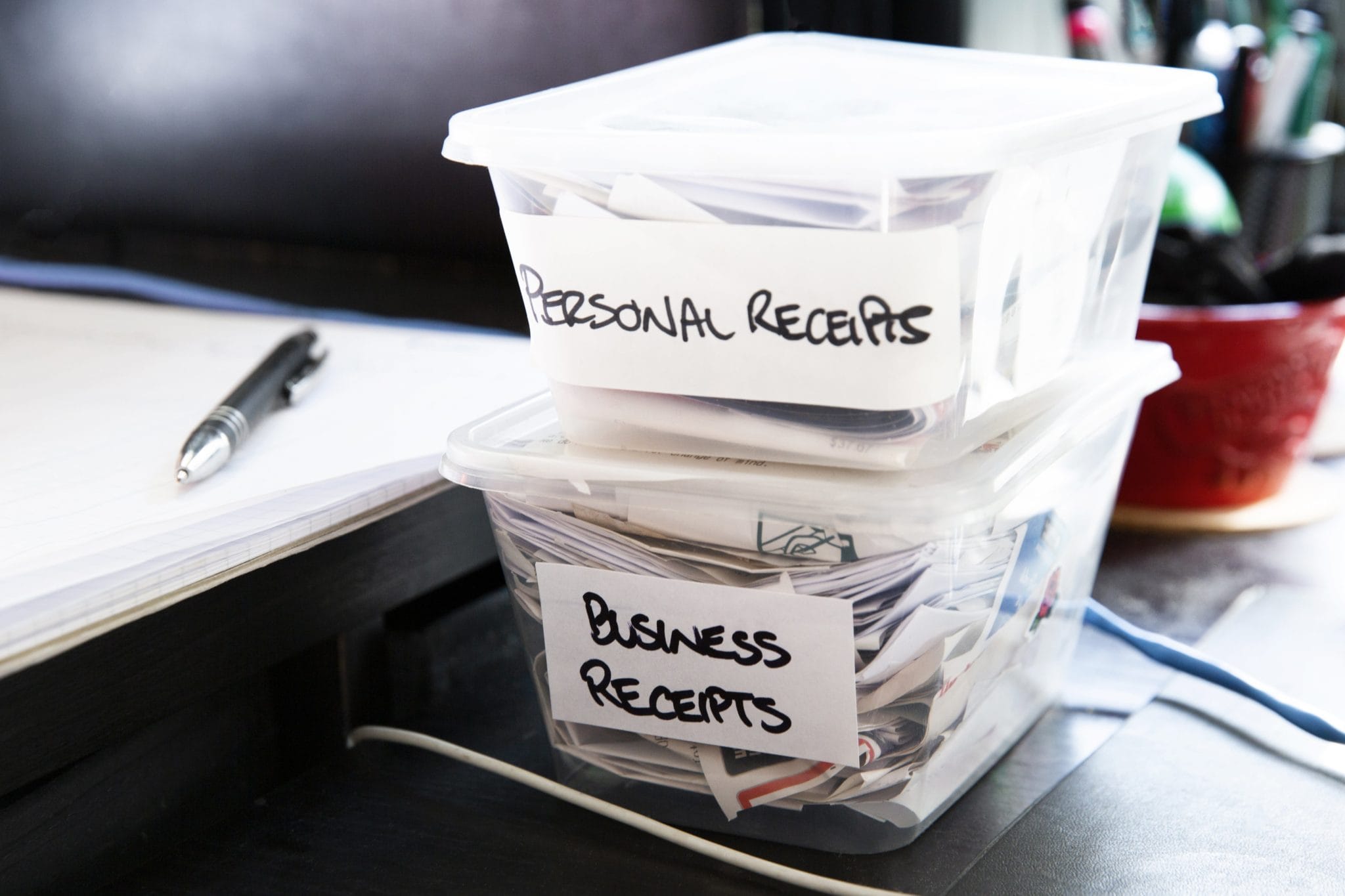2020 was certainly a year that will be remembered decades into the future for a variety of reasons. COVID-19 completely overtook our lives as it directly and indirectly affected millions. We saw millions infected, thousands die, and a booming economy crash to earth.
As a self-employed individual, to survive, you needed to adapt your business to the social-distancing model that has become the new normal across the nation. While doing so, you probably had to make significant changes to your daily operations. Video calls replaced in-person meetings, while paper generally fell by the wayside as PDFs became essential.
As you look over your 2020 year end books, you might find yourself debating the deductibility of some of these new expenses. Can you expense your house utilities now that you are working out of your home? What about that new Zoom subscription you use for client calls? While many expenditures can, in fact, be placed on your tax return, you need to follow rules outlined by the IRS. The IRS has a basic litmus test where you must answer yes to both of the following in order to deduct an expense:
- Is the expense ordinary? In other words, would another business in your industry realistically have a similar expense?
- Is the expense necessary? Will this expense help you to increase income or reduce current or future expenses?
Whether you are debating new expenses or need a refresher on the deductibility of old ones, we hope to provide more clarity on some of the deductible versus nondeductible expenses a business owner may have.
Advertising
Ads on an online search engine, costs to maintain your company website, and business flyers are all examples of potentially deductible advertising expenses. However, expenses must be reasonable. For example, the IRS has specifically stated that putting company display material on your car does not mean that you can deduct the cost of your car as advertising on your tax return.
Auto Expenses
When a vehicle is utilized for business purposes, many expenses associated with its use and upkeep are deductible business expenses on your tax return. There are two ways to deduct auto costs. You can either use actual expenses (such as gas, tires, and car washes), or you can use a standard mileage rate (57.5 cents per business mile for 2020, 56 cents per mile for 2021). Keep in mind that if you use actual expenses, you cannot deduct the principal payments of an auto loan, only the interest on that loan.
Whether you pick actual auto expenses or mileage, it is critical that you keep a mileage log. This log should document the business trips you make with your vehicle. You can use an app that tracks your phone’s GPS, you can keep track in a mileage booklet, or use some other form of tracking material. Here is an example mileage spreadsheet you could use.
Not all mileage is treated the same by the IRS. Obviously, personal miles (personal trips to the grocery store, family vacations, etc.) are not deductible. Also, commutes from your home to your permanent work location, such as your office, and back are not considered business expenses.
When using actual auto expenses, you must multiply your auto expenses by the percentage of business miles.
For example, say you had 1,000 business miles, 500 commuting miles, and 2,500 personal miles in 2020. You would divide business miles by the total miles driven (1,000/4,000 = 25%) to determine business use percentage. You would then multiply 25% by the total expenses. Say you had $2,000 in total auto expenses. You would then be able to deduct $500 on your tax return.
In the same above case, if you took the standard mileage deduction, you would multiply 1,000 business miles by $0.575 to get a deduction of $575. In this case, it would make more sense to take the standard mileage rate versus actual auto expenses.
Clothing
Clothing is only considered deductible if it is:
- Required or essential for your job,
- Distinctive or protective, and
- Unsuitable for everyday wear
Examples could include a uniform worn by a security guard or scrubs worn by a surgeon.
While your dress or suit is not considered deductible, disposable products (such as masks, gloves, and shoe coverings) may be.
Continuing Education
Any expenses paid for classes taken to maintain your business license or to maintain or improve your skills in your profession are deductible.
However, costs incurred to obtain a license (such as exam fees and study materials) or costs for learning outside of your current profession (such as a real estate course taken by an engineer) are nondeductible.
Dues, Memberships, and Subscriptions
Professional dues, memberships, and subscriptions are deductible if they are used for business purposes. Along with your association dues and magazine subscriptions, you can also deduct that shiny new Zoom subscription you used for client meetings, and other software subscriptions that have suddenly become absolutely essential.
Entertainment
While taking clients to the local golfing range may once have been considered deductible, the tax reform bill passed in 2017 has disallowed all entertainment expenses until 2025.
Gifts
You can deduct up to $25 per client in business gifts such as gift baskets or donuts. However, gifts costing $4 or less per client are not included in this number if they have your permanently engraved business name etched on them and if they are distributed on a regular basis.
Health Insurance
Had you been employed by a company that offered health insurance, you would have been able to offset your taxable wages with the cost of the premiums. Similarly, if you are self-employed, you may be able deduct the cost of health insurance for you and your family on your tax return. This could also include premiums on qualified long-term care insurance.
However, for all premiums, you may deduct the expense only up to the net profit of your business. In other words, if the cost of the premiums exceeds your business’ net profit, the deduction will be decreased until the business income is reduced to zero. Also, you may not deduct the cost of a health share plan, which is not considered health insurance by the IRS.
Home Office
If you are a self-employed taxpayer and moved your office to your home, you may qualify for a home office expense deduction. To qualify for this deduction, you must have set aside a space in your home that is used regularly and exclusively for work. It must also be considered your principal place of business.
This means that if you set up your workstation at the dinner table, you will probably not be able to take the deduction. However, if you converted your empty spare room into an office space, you most likely would qualify.
There are two ways to deduct your home office. If you decide to use the regular home office deduction, you will take the square footage of the office and divide it by the total square footage of your house. You then can take that percentage of utilities, mortgage interest, depreciation, etc. as part of your home office expense.
You could also choose to use the simplified version and deduct $5 per square foot of your home office. However, the simplified deduction is capped at $1,500.
Meals
Business meals are considered deductible as long as they are not lavish or extravagant under the circumstances and the taxpayer or an employee of the taxpayer is present. The taxpayer may only deduct 50% of the cost of the meal on their tax return for 2020. However, Congress has allowed businesses to deduct 100% of meals from restaurants for 2021 and 2022 in the most recent stimulus package.
Personal Care Products
Everyone likes to look good both at work and off. However, haircuts, makeup, and other personal care items are not deductible on your tax return.
Rent
Whether you rent an office space or a piece of machinery, if the expense is for business purposes, it is deductible on your tax return.
Repairs and Maintenance
Many business owners find that they must repair their equipment or other assets at some point or another to maintain their usability. You may deduct the expense of the repairs if they are to keep the property in working order and do not substantially improve the property. An example of this would be replacing worn out parts in your machinery.
If, however, you improve the asset in any way, the taxpayer must generally spread out the original expense of the improvement over several years, a concept called capitalization. If, for example, instead of replacing worn out parts to the old machine, you modify the machine so that it becomes faster and more efficient than it had prior to breaking down, then the expense will most likely need to be capitalized.
Retirement Contributions
While not necessarily business expenses, retirement contributions can be used to offset income on your tax return. There are a variety of retirement vehicles available to self-employed individuals ranging from Traditional or SEP IRAs to solo 401(k) plans. There are contribution limits and eligibility requirements for each type of plan, so before starting a retirement plan, you should consult your financial advisor or accountant.
Supplies
Assets purchased for business use, such as laptops or hardhats, are tax deductible. Generally, when assets are expected to be used for more than one year, they must be capitalized. The IRS, however, has a de minimis safe harbor where it allows assets costing $2,500 or less to be expensed entirely in the year they are purchased. However, keep in mind that you may still be required to track the cost of those assets in your business for state or local personal property tax purposes.
The expenses covered in this article are by no means a comprehensive list. Just because an expense you may have does not easily fit into any of the above categories, it does not mean that you cannot deduct it. Many industries have very unique costs. For example, a real estate professional may pay staging fees whereas a writer may have editing and publishing expenses. If the expense is considered ordinary and necessary for your business and is not for personal use, it is probably deductible. Make sure to do your research and if you have any questions, please contact us.
© 2021
Written by: Ben Noel, CPA

Ben Noel joined Thompson Greenspon in September of 2020 as a Tax Senior. Prior to joining the firm, he worked for a regional accounting firm in the Boise, Idaho area. Ben has experience with providing tax services for real estate investment entities, professional services firms, farms, and closely held businesses and their owners. His experience includes tax compliance and accounting assistance for S corporations, partnerships, sole proprietors, nonprofits, and individuals.
Ben graduated from Brigham Young University – Idaho with a Bachelor’s degree in Accounting in 2016. He received his Master’s in Accountancy at Boise State University in 2017.
Ben has served as the treasurer for The House Next Door since January of 2020. He is a member of the American Institute of Certified Public Accounts, the Virginia Society of Certified Public Accountants, and the Idaho Society of Certified Public Accountants.


